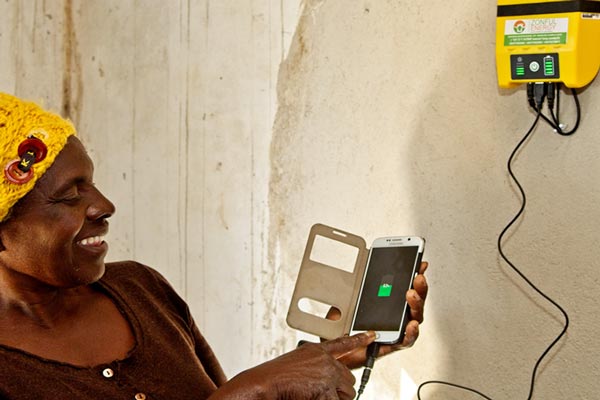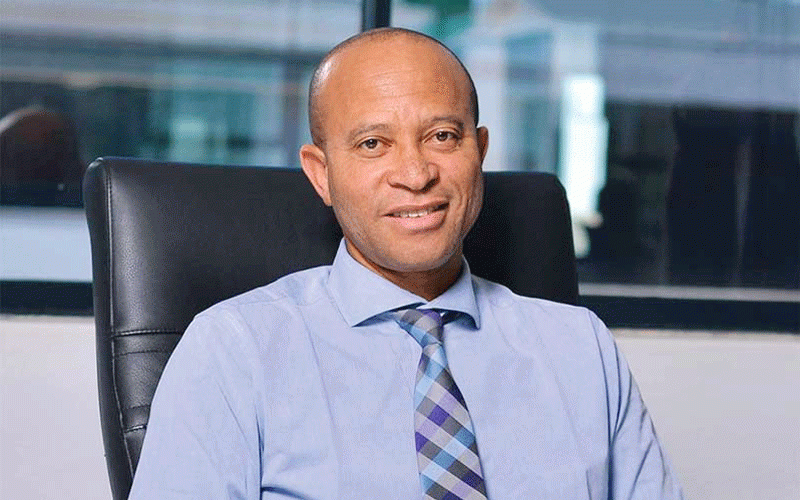
A local renewable energy startup, Zonful Energy was recently listed in the London Stock Exchange Group’s 2018 edition of the Companies to Inspire Africa report. Our Business Editor Kuda Chideme caught up with Zonful Energy’s chief executive, William Ponela, to get insights into the business.

KC: What exactly does Zonful Energy do?
WP: We supply energy to off-grid markets although we also accommodate people that are connected to the grid. The customer pays a small deposit then they progressively pay towards access to solar products. If the customer skips a payment they are remotely switched off until they catch up with their payments.
KC: How did the idea come about?
WP: This is something I came up with because of my own personal experiences. I grew up in the rural areas where we would use firewood and kerosene because there was no electricity. During the rainy season we would go to sleep early because the whole place would be dark. So all along I have been thinking to myself and asking myself this question: ‘how do we give people access to uninterrupted electricity?’ The costs for such a venture were prohibitive and the initial capital investment for anyone in the rural areas was out of this world. So I had to come up with something that suits the income levels of the rural folk. According to our research the average person in the rural areas spends between $15 and $30 per month on energy access and entertainment so the solution that we came up with has a saving. All they have to do is just pay up their subs through the mobile phone.
KC: What has been the level of defaults?
WP: To be honest, we have very few defaults, people have been paying up. Currently, we are upwards of 96% in terms of payments. Funny enough it is the people in the urban areas who have defaulted, but the rural folk respect their obligations.
KC: How long did it take you from conceptualising the idea to having the company running?
- Chamisa under fire over US$120K donation
- Mavhunga puts DeMbare into Chibuku quarterfinals
- Pension funds bet on Cabora Bassa oilfields
- Councils defy govt fire tender directive
Keep Reading
WP: It took me five years before we started selling anything. It was all research and a lot of trials of a lot of options. We are customer centric so the five years was to listen to the customer and fine-tuning our product to suit the customers’ requirements.
So by the time we launched in 2016 we had gone through a process where we had tried a number of products. In the pilot project, most of the products were damaged by rodents so we redeveloped it to become rodent resistant.
It took us a bit of time because we did not just want to go to the market with a generic product like what everyone else was doing.
KC: What was your initial capital outlay?
WP: The initial capital outlay wasn’t a lot of money. I do not believe that you need a lot of money to start a business. What you need is an idea and passion and with passion comes innovation. When people invest, they do not invest into companies but in an idea.
Our first capital was actually $50 000 which we raised through crowdfunding with the assistance of a non-profit organisation, Kiva. I went and pitched the idea at an energy conference in Dubai where we generated a lot of investor interest and people started to reach out.
After our pilot project in Mhondoro, we went out and started looking for investment but no one wanted to bring money into Zimbabwe because of the perceived country risk. So it was not an easy thing for us to raise the finance for scaling up the business.
I later managed to convince Persistent Energy which is a Swiss-based company. They liked the idea and they gave us a convertible loan of $410 000. They did not even wait for the tenure of the loan to lapse and they chose to convert their loan into equity. At that same time, another venture capital firm, Energy Access came in and matched the investment by Persistent. As it is, they have both taken 20% of the company.
But before these companies (Persistent Energy and Energy Access) came into play I had won a business competition Africa Enterprise Challenge Fund where we were awarded $1 million. They asked us to get matching funds for every dollar they would give us. We basically had to raise an equivalent from outside so this is how Energy Access Venture and Persistent came to the table. Of the $1 million we were given a $400 000 as non-repayable grant, then the rest is a non-interest bearing loan.
Last year we also won another business competition for 500 000 euro for which we are still in the contracting stage
KC: Have you managed to get a return on the investment?
WP: We are not making a loss but our focus is on upscaling the business. We believe we are building the Amazon version of Africa, something that will last for generations. Last year we had a record deployment of 10 000 units in six months which is quite impressive because it would take other people probably 3 to 4 years to get such numbers.
We have managed to do the recruitment and to develop the company in terms of infrastructure. We have done a complete integration with Ecocash so the payments are in real time. We have one of the most modern systems in the industry. Now we have a programme to expand nationally and set up offices in all districts.
KC: How big is your team?
WP: Currently we have 38 full time employees then more than 200 agents throughout the country. The agents coordinate our activities in the districts. From next month we are looking to expand the team because of the growing business volumes.
KC: Given that the industry is highly technical, are you encountering any challenges in finding skilled personnel?
WP: Zimbabwe is full of skilled personnel, they just lack experience. In areas that we feel our people need experience we fuse them with expatriates that Persistence and Energy Access have seconded to us.
KC: Would you consider disposing any more of your stake in the company? Do you have any plans to raise more capital?
WP: We are looking to reach 1 million households by 2025 which would require a lot of capital, but given the prevailing economic conditions I do not intend to get into debt finance, especially from the local institutions considering what they demand. So one way or the other I might consider offloading some of the equity. One of the investors is also helping in the initiatives to raise more capital.
KC: In terms of policy, do you think government is doing enough to support the adoption of renewable energy?
WP: Our government is not constant with policies, especially on renewable energy. For instance there is Statutory Instrument 147 of 2010 which the government put to exempt all solar products from paying duty but right now we are paying 40% because someone in the corridors of power decided otherwise.










